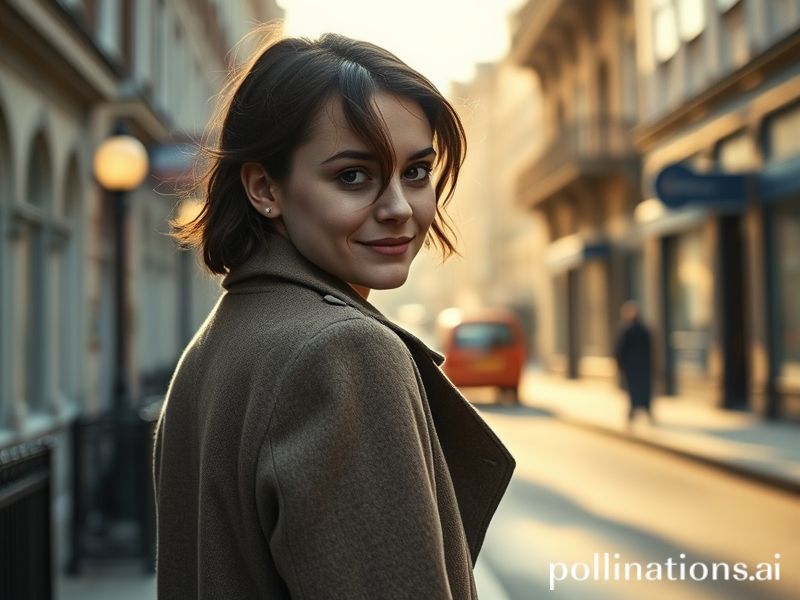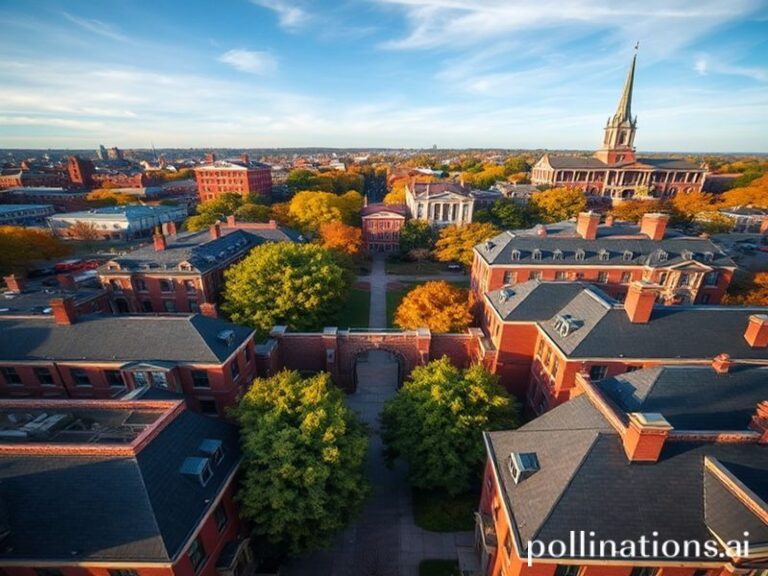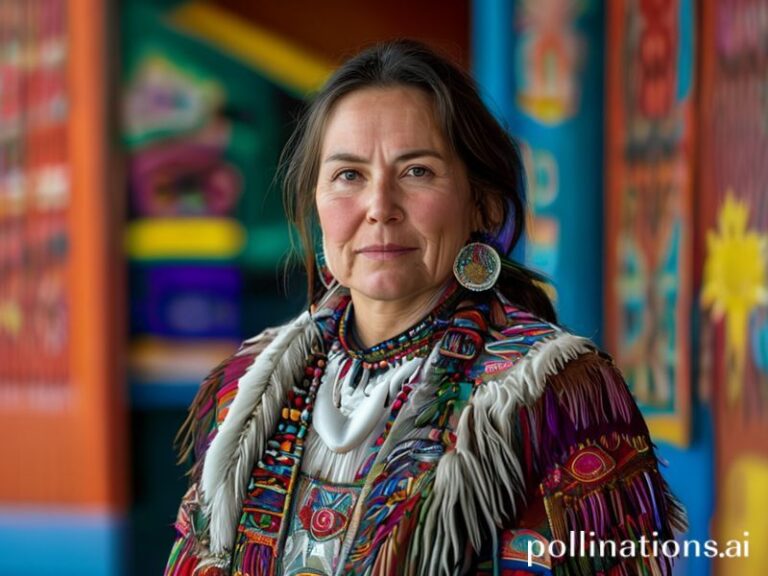Olivia Cooke: Britain’s Last Working Export in the Age of Algorithmic Meltdown
Olivia Cooke and the Curious Persistence of British Talent in an Age of Algorithmic Mediocrity
By Our London Bureau Chief, nursing a lukewarm pint of resignation
There are moments—usually at 3 a.m. somewhere between Dubai Duty-Free and the existential dread of another delayed connection—when one wonders why the planet still exports British actresses. After all, the Empire has been reduced to a souvenir shop in Portsmouth, and the BBC is now mostly a tax-funded panic attack. Yet here we are, still airlifting fresh Shakespearian DNA like emergency rations to a streaming-starved world. The latest crate off the runway? Olivia Cooke, age 29, Lancastrian vowels and cheekbones sharp enough to slice a trade deal.
Cooke is currently orbiting global consciousness via HBO’s “House of the Dragon,” a prequel so prequelly that half the audience needs a genealogist and the other half needs therapy. Her character, Alicent Hightower, navigates dynastic politics with the weary efficiency of a Brussels bureaucrat—only with better lighting and the occasional dragon-induced HR complaint. The show streams in 194 countries, which is roughly the same number currently arguing about gas prices and whether democracy is just an elaborate subscription service.
The numbers are, of course, stupid: 10 million illegal downloads in 24 hours across Southeast Asia alone, a torrential tribute that would make a Somali pirate blush. Meanwhile, Chinese censors trim the incest scenes like overzealous florists, proving that even authoritarian regimes prefer their dynastic chaos with a PG-13 bow. In Brazil, Twitter trends alternate between Portuguese thirst tweets and genuine confusion over why British people never appear to own a hairbrush. Globalisation in action: one actress, 7.9 billion opinions, and a universal agreement that wigs look terrible in humid climates.
What makes Cooke interesting—aside from the obvious genetic lottery and an agent who could broker Middle-East peace—is that she represents Britain’s last soft-power export that doesn’t leak. The Royal Family is busy self-immolating on Oprah, the Premier League is essentially a Saudi sovereign-wealth fund with chanting, and British politics has become performance art for the clinically overconfident. Against that backdrop, Cooke’s ability to emote in complete sentences feels almost revolutionary, like discovering a pub that still accepts cash.
Her CV reads like a fever dream concocted by a Cannes jury after too much rosé: indie darling in “Me and Earl and the Dying Girl” (American suburbia’s favourite cancer rom-com), Victorian hysteric in “The Limehouse Golem” (proving that Jack the Ripper was simply bad dating-app algorithms ahead of their time), and now quasi-incestuous queen in a franchise that prints money faster than the Bank of England can devalue it. Each role is a subtle reminder that the UK no longer manufactures cars or consent, but it can still produce a convincing emotional breakdown in period costume.
International casting directors adore her because she’s the human equivalent of an adjustable interest rate: plausibly posh, plausibly prole, and able to cry on cue when quarterly earnings dip. In Hollywood she’s “the anti-Megan Fox”—which is to say she can act and doesn’t require an entire VFX team to emote. In Seoul she’s the face on subway adverts promising prestige dramas instead of another zombie apocalypse. In Lagos, bootleg DVDs label her “Game of Thrones Girl 2.0,” a marketing strategy as accurate as calling Brexit “a minor clerical error.”
The broader significance? Cooke’s ascent coincides with the moment global audiences realised that algorithms can’t quite replicate human angst—yet. Netflix’s AI-generated Christmas rom-com, “Princess Switch 7: Reindeer Reckoning,” was recently booed at a refugee camp in Jordan, a humiliation previously only achieved by U2. Viewers, it turns out, still crave the authentic twitch of a British upper lip rather than a deepfake thereof. In an era when deepfakes can make Putin sing “My Heart Will Go On,” the living, breathing awkwardness of a Lancastrian who pronounces “bus” as if it owes her money feels almost radical.
Consequently, Cooke is less a performer than a geopolitical placebo: proof that while nations implode and currencies fluctuate like crypto drawn by a toddler, a 29-year-old from Oldham can still convince the world that dragons—and by extension, hope—exist. It’s a fragile kind of magic, the sort that evaporates the moment you remember her next role is slated for Amazon Prime, where user reviews will inevitably complain about “historical inaccuracy” from people who think the Hundred Years’ War was a Netflix limited series.
Still, as the planet hurtles toward its next scheduled catastrophe, there’s comfort in the small, absurd fact that humanity can agree on one thing: Olivia Cooke looks fantastic in candlelight. And if that’s the closest we get to world peace, well, pour another lukewarm pint. The bar, like the Union Jack-emblazoned suitcase following her to every junket, is still open—for now.







